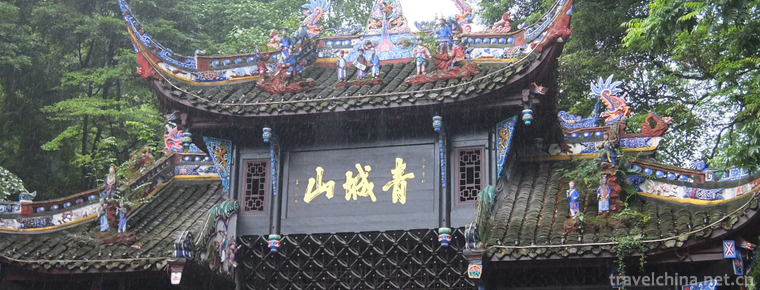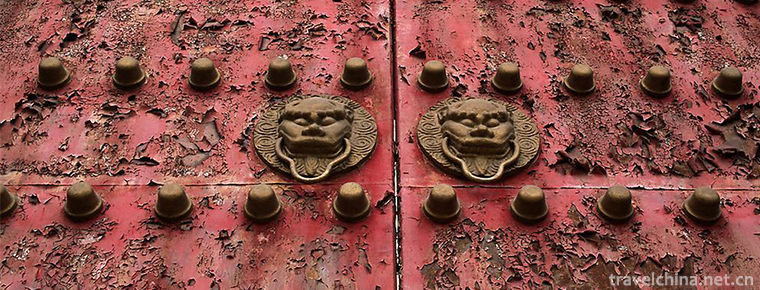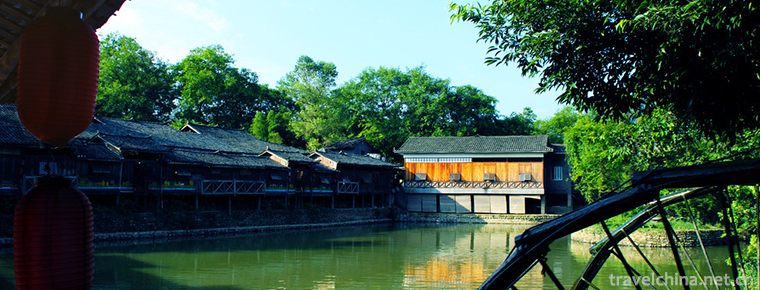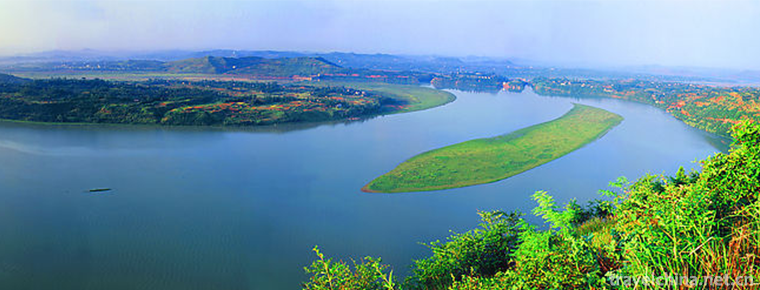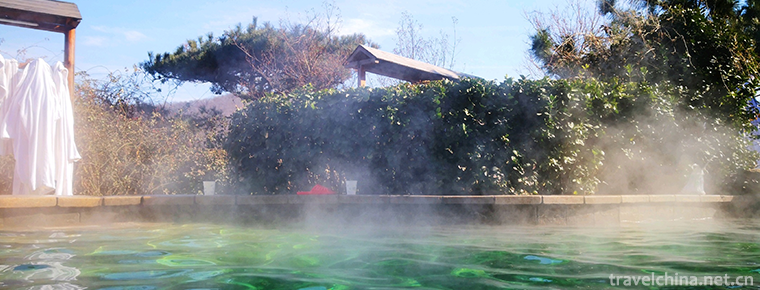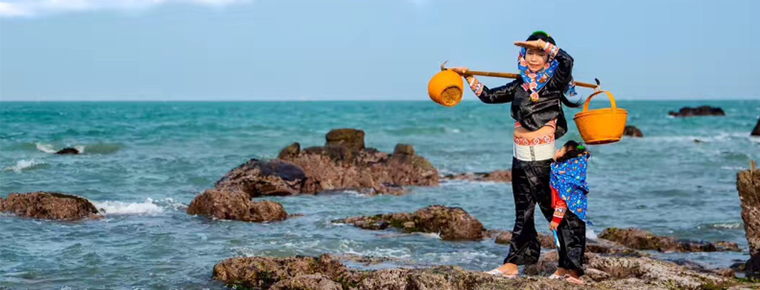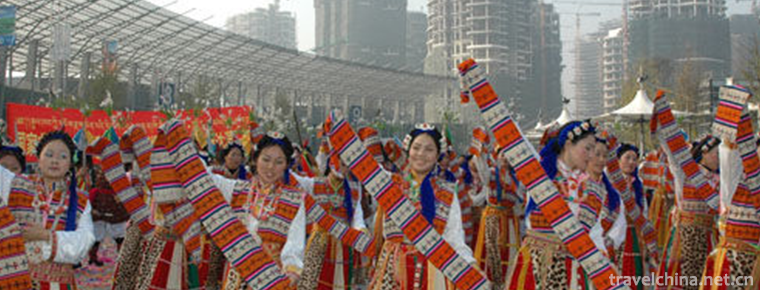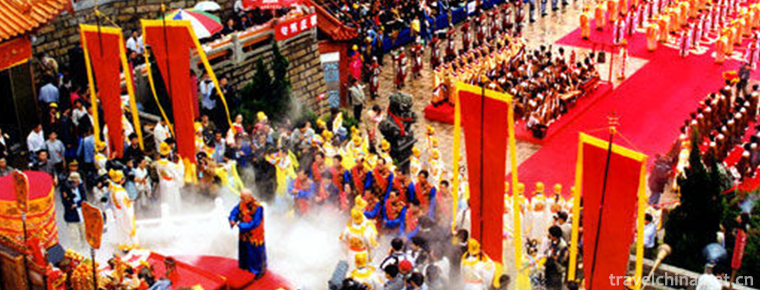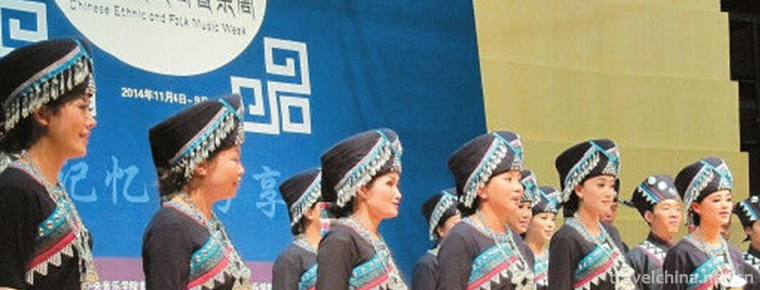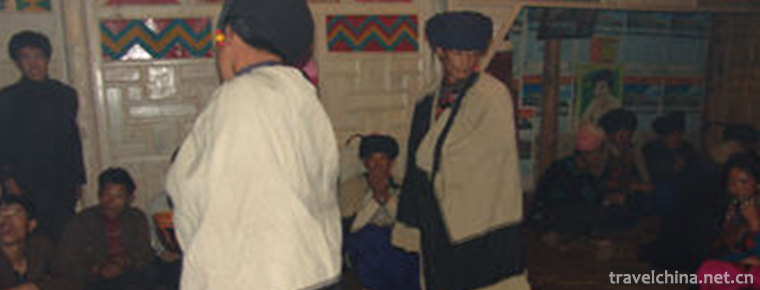Qu Opera
Qu Opera
Opera is one of the traditional operas mainly spread in Henan Province. It was also called "Gaotai Opera" or "Quzi Opera" in the old days. Quju is popular in Henan Province and its surrounding areas. It is developed on the basis of the local popular Quyi drum tunes (Luoyang tunes, Nanyang tunes) and stilt-walking performances. Opera music can be traced back to Henan drum tunes sung in class. The miscellaneous minor combined with Henan folk singing and dancing on stilts was first put on the stage in Dengfeng County in 1926 by the Tongyue Society composed of farmers in Linru County (today's Ruzhou City), which formally developed into a kind of opera. Among them, "stilts" from the removal of stilts on the stage of the actors, is a qualitative leap from folk songs and dances to "Gaotaiqu" this formal form of opera.
On May 20, 2006, Quju was approved by the State Council to be included in the first batch of national intangible cultural heritage lists.
Historical Evolution
Quju was developed on the basis of Henan traditional folk opera. At first, it was performed by performers on stilts while singing songs. Later, it gradually developed into Gaotai music. Drum tune is a kind of rap art of the combination of music and cards. When singing, three or five people practice sandalwood festival, which is contrary to the previous three-string accompaniment form. They need to help the cavity together. Each track is sung in a certain order of cards. About the end of the Qing Dynasty and the beginning of the Republic of China, a combination of drum music and stilt walking appeared, which is called stilt music. When it first appeared, it was neither disguised nor professional, but composed of several people on stilts singing storyline songs, accompanied by three strings and other musical instruments, walking around the streets. Before and after 1920, stilts with simple disguise and rough division of labor appeared. Most of the drum tunes performed included folk tale scripts of characters, such as "Xiaoguxian", "Tapping Soap", "Little Fishing" and so on. "Stilts" removes stilts and enters the stage of drama. It is a symbolic event that it evolves from folk songs and dances to formal "Gaotai Opera", which forms a qualitative leap in the development of opera.
As early as the seventh day of April in the fifteenth year of the lunar calendar (1926), a group of 16 people, led by Guan Yunlong, Dazhang Village, Linru County (now Ruzhou City), Henan Province, went to Sanli Liwa Village, Yingyang Township, Dengfeng County, Henan Province to perform in a rainy day. In the stilts performance, Li Zubai of Liwa village (Baochang, coax the play) proposed that they must remove the stilts and stand on the stage to sing songs. The peasants who watched the performances took the cart carrying the stilts to a high platform, removed the stilts and went to the stage to sing. They sang the repertoires of Xu Zhuangyuan's Pagoda and Yang Bajie's Nocturnal Hotel. This brings stilts to the stage. Two months later, on June thirteenth of the lunar calendar, Li Wa Village sang temple fair opera for Longwang Temple every year. In front of the temple gate, there was a small platform 0.5 meters high, covered with a shed, and behind it hung a large piece of red cloth to make the background (called the veil). It was like a stage, which was made by Geng Gengchen of Yichuan, Kong Haidong, Liu Jinshui, Guo Taichao.... Dengfeng's Wang Tianshui, Fan Suilin, Li Zha.... Twenty people sang operas on the stage, imitated the local overtone and high-profile (Henan Bangzi) and added small bronzes. The songs include "Ding Lang recognizes his father", "Tianhe Ji", "Liu Quan Jingua", "Wusong kills his sister-in-law", "Library Club" and so on. The new way of acting has achieved unexpectedly good results. Since then, Taizi Opera has stepped onto the stage, called Henan Opera, and later renamed Henan Opera. Henan Opera was formally born in Liwa Village. After the temple fair play, the news spread far, and the constant invitation to sing for them brought famous performances from all over the country and performers from the village to perform outside, and wrote the four big words of "Awakening the People's Opera Troupe" on the red cloth. This is the earliest Opera Troupe in China and the first opera troupe in China. In 1927, he began to make a living performing in other places. Soon it affected the nearby counties and townships, and there were many singing organizations. This form of performance without stilts on stage became more common in the late 1920s. It also affected Zhu Wanming. In 1928, after watching the performance of Civilized Drama (Popular Drama) in Luoyang, they were greatly inspired and their ideas changed. They joined up with "playmates" and went to the city to perform fashion dramas such as Quitting Big Smoking, Letting Foot Go, and Li Kuizi Divorce in a Weiyuan (the original site of the "Victory Stage" in Luoyang's old collection. Since the 1930s, stage music has gradually learnt from brotherly operas, accompaniment instruments have gradually increased, and gradually developed into a sound "civil and military arena", thus forming a complete local opera and developing toward a standardized direction. Opera has absorbed percussion music of Yue Diao, Henan Opera, Peking Opera and other operas, and enriched orchestral music according to the needs of singing accompaniment. The repertoire has gradually shifted from performing family life drama to performing historical drama (robe with drama), from performing small and medium-sized drama to performing major drama, and all walks of life have gradually improved.
But in the early 1930s, the general Opera Troupe still stayed in the amateur nature: busy farming, leisure from the arts, a class club only more than ten people. They don't talk about the price of the performance, they just want to eat. If gifts are received, the whole class will be evenly distributed. At that time, Gaotai classes appeared successively in Runan, Zhoukou, Xinyang and Nanyang.
Around 1930, there were four well-known Gaotai Theatre Clubs: first, the group headed by Zhu Wanming, with Luoyang as its activity center; second, the theatre headed by Liu Le, often in Mengjin and Xin'an; third, the theatre headed by Hu Ding and Liu Baocai, often in Luohe and Yexian; fourth, the theatre headed by Qin Zhongxu and Li Yongzhi, often in Dengfeng. Activities in Yanshi area.
By the time of the Anti-Japanese War, the development of opera was still rapid, covering the main counties and cities of the whole province, and even Linquan area of Anhui Province also had the performance traces of Henan "opera". In Zhoukou, Huaiyang and Jieshou, semi-professional theatre troupes began to appear. The famous actors include Yang Defu (famous Chinese cabbage), Li Jinbo, Chen Wanshun and Chen Yupei (the earliest actress in opera). In 1939, Li Jinbo performed Gao Ping Guan on the same stage as Jiao Juyin, a dramatist in the cultural village of Anhui Province; in 1940, most parts of Henan Province were occupied by the Japanese invading army, and many opera artists were forced to exile to Nanyang and other places to form professional class clubs, thus taking Nanyang as the center, performing activities, and some of them went to northern Hubei, southern Shaanxi, Eastern Sichuan and other places. In the performance, some artists exiled along the Longhai Railway to Baoji, Tianshui, Lanzhou and other places. Among them, Fantasy Society founded by Zhao Zian and Made Mountain is the most famous one. In 1943, Li Jinbo, Zhang Fenglu and other opera troupes formed the Anti-Japanese Opera Society.
After the victory of the War of Resistance Against Japan, in 1946, the government of Henan Province of the Kuomintang ordered the banning and banning of operas under the pretext of "corruption" and "lewdness and robbery", which forced many artists to sing in Shanxi, Shaanxi, Hubei and Sichuan for a living. Famous artist Li Jinbo, fearless of violence, organized Ren Junjie, Bai Yongling and Chang Wencheng in the name of "alarm bell drama club-Nanping Diao". He performed in Xinlin Cinema in Kaifeng in November of that year. He was welcomed and supported by the audience for about two months. Under the pressure of public opinion, the Kuomintang rulers will not be able to do so. In order to celebrate the re-survival of the opera, the "alarm bell drama club-Nanping Diao" was renamed "Xinsheng opera club", and the Luoyang opera troupe, mainly composed of Lan Jiwu and Liu Health, was invited to perform. In 1947, when the Xinsheng Opera Club was performing in Zhengzhou, the Kuomintang government suspected the Communist Party of propaganda with the word "Xinsheng", and the drama club was ordered to dissolve by the authorities.
After the founding of the People's Republic of China, opera has been restored and developed. Henan opera not only prevails in most parts of the province, but also has professional troupes in Gansu, Shaanxi, Hebei, Anhui, Jiangsu and Hubei. In 1956, in view of Zhu Wanming's contribution to the formation of Henan Opera, the first Henan Opera Viewing and Moving Conference awarded him an honorary prize, and Linru County was also known as the birthplace of Henan Opera.
By 1983, there were 33 professional theatre troupes in Henan Province. Among these troupes, the more famous actors were Guo Lixian, Zhang Xiaofeng, Xing Jin-E, Xie Fangxin, Huo Zhenhai, Guo Fengye, Tian Qinze and Zhou Yuzhen. Opera troupes around the country have also arranged and adapted a number of excellent traditional operas and created and performed a number of modern operas, making operas innovative in performing arts, stage art, music and singing.

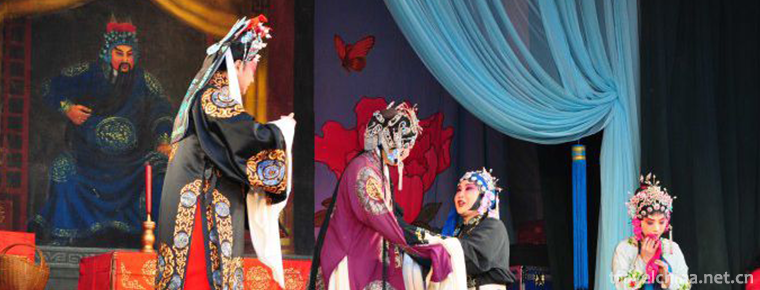
-
The Beijing Palace Museum
The Beijing Palace Museum was established on October 10, 1925, and is located in the Forbidden City of the Beijing Palace Museum. Based on the palaces of Ming and Qing dynasties.
Views: 197 Time 2018-11-24 -
Qianwei ecological village
Qianwei Village is located in the middle of Chongming Island, 23 kilometers away from Nanmen Port, close to Dongping Forest Park. Once a desolate and silent village, now it has both urban scenery and .
Views: 275 Time 2018-12-26 -
Guilin Yijiang Margin Scenic Spot
Guilin Yijiang Rim Scenic Spot is situated on the northwest tour line of Guilin with long corridor. It is 32 kilometers away from the urban area (321 National Highway Lingui Wutong Town Section)..
Views: 330 Time 2019-01-13 -
The First Sangzi in Jialing
The first Sangzi of Jialing is located in Peng'an County, Sichuan Province. Peng'an is the home of Sima Xiangru, a great poet of the Han Dynasty. It is located in the northeast of Sichuan .
Views: 120 Time 2019-01-21 -
Taishan Hot Spring City
Taishan Hot Spring City Cultural Tourism Scenic Spot is invested and constructed by Shandong Taishan Hot Spring Tourism Development Co., Ltd. with a total investment of 2.6 billion yuan.
Views: 135 Time 2019-02-13 -
Huian womens clothing
Hui'an women refer to a group of special folk women on the coast of Huidong Peninsula, Hui'an County, Quanzhou, Fujian Province. They are famous at home and abroad for their unique clothes and diligen.
Views: 197 Time 2019-05-04 -
Castawin Dance
Castawin Dance, a traditional dance in Heishui County, Sichuan Province, is one of the national intangible cultural heritage..
Views: 190 Time 2019-05-08 -
Mazu memorial ceremony
Mazu Festival, which originated in Song Dynasty, experienced Yuan, Ming and Qing dynasties and continued to expand and enrich. By the Qing Dynasty, Mazu was named "Tianhou", and the title re.
Views: 204 Time 2019-05-15 -
Poop love song
In February 2006, a cultural census unexpectedly found "Poya Ge Shu" in Poya Village. Through expert research, 81 patterns in "Poya Ge Shu" have the character of words, and are one.
Views: 211 Time 2019-06-09 -
Yi Kezhi
Yi Kezhi is a popular oral literature of poetry style among the Yi people. It is the cultural accumulation formed by the Yi people in their long-term production and life, and has a very long history. .
Views: 157 Time 2019-07-12 -
Mount Fulai
Mount Fulai is one of the top 40 tourist attractions in China. It is 27 kilometers away from Shunan Bamboo Sea central scenic spot and 10 kilometers away from qidonggou, a 4A tourist attraction. It is composed of more than 80 hills. .
Views: 165 Time 2020-10-16
